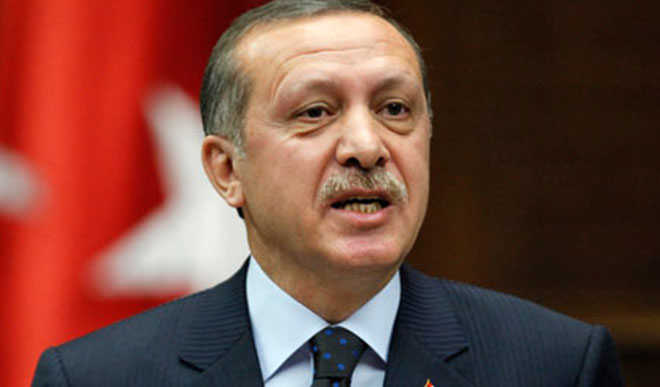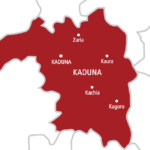
On the evening of July 15, 2016, a friend called around 10:30pm and said that both bridges connecting the Asian and European sides of Istanbul were closed by military barricades. Moreover, military jets were flying over Ankara skies. As someone living on the European side of Istanbul and commuting to the Asian side to my university on a daily basis and spending many hours in traffic to do that, I immediately knew that the closure of both bridges was a sign of something very extraordinary taking place.
To confirm the news about the military jets over Ankara, I called my parents in Ankara. They answered the phone in a panic. I could hear military jets from the other end of the phone. Not surprisingly, my 86-year-old parents had experienced military coups in Turkey before. As I was talking breathlessly with my Dad, my Mum murmured from the other line calmly but firmly: “this seems like a coup d’état.”
From that point onwards, all hell broke loose, especially in Ankara and Istanbul. The death toll in less than 24 hours after the coup attempt in Turkey was over 200. There were thousands of people who were wounded. Twitter and Facebook became inaccessible during the early hours. The TV channels started broadcasting live from Ankara and Istanbul: yet, they were not sure what was going on at the outset. Shortly after, the military released a statement saying that the “military has seized all power in Turkey” through the state TV channel TRT. That is when I could not stop my tears, for memories flocked back to September 12, 1980, coup d’état when a similar announcement was made. I had experienced that coup as a student in one of the most politically active universities in the country, the Middle East Technical University. The memories, as for many people of my generation, were painful.
Within two hours, Turkey’s President Recep Tayyip Erdoğan was live on FaceTime on Turkish CNN (CNN Türk). His face could be seen on TV screens as it appeared on the phone held in the hand of the CNN Türk anchor. He issued a statement in this manner and urged the people to go to the public squares and the airport and defend the nation. Soon afterward, there were echoes of calls to prayer from multiple minarets although it was not prayer time. I read later that there were also calls for action by Imams against the military urging people to take to the streets.
Joining the echo of the calls to prayers were the loud noises of military jets flying over Istanbul skies. The combination of these sounds made me think that yes, these were the sounds of the funeral of free speech, critical thinking, and any other remnants of the liberal democratic process in Turkey. I realized in fear and agony that whether the coup was successful or not, one thing was sure: there would no longer be room in Turkey for people who can listen, read, analyze, and think critically.
This did not happen suddenly. With the crackdown on media, academic freedoms, random arrests, and the increasing violence in the southeast provinces, citizens in Turkey have been facing significant limitations on their basic freedoms for the past few years. The attempted coup d’état of July 15 is like the last nail in the coffin. Lying dead in the coffin was the courage to use one’s understanding (as in Sapere Aude) that relentlessly resisted the rising tide of categorical thinking typical of true believers.
The damage that was inflicted on the parliament building in Ankara was huge. Many of its main halls and corridors are in ruins. The sight was reminiscent of the Reichstag fire in Germany that took place on February 27, 1933, about a month after Adolf Hitler became the Chancellor. The similarities are not limited to the visible damage to both parliament buildings. The Reichstag fire was also the last nail in the coffin of the possibility of fundamental freedoms as well as critical thinking in Germany. On the evening of the Reichstag fire, Chancellor Hitler was relaxing at a dinner party in Joseph Goebbels’ home. The fire was soon blamed on a demented Dutch Communist named Marinus van der Lubbe, who had a record of crimes of arson. The reality behind the Reichstag fire was not even clarified during the Nuremberg trials. Still, there was a lot of evidence that pointed to the responsibility of the Nazis for it. But what was important was not so much who set fire to the Reichstag but rather what came out of it.
On the day following the Reichstag fire, the juridical order was suspended by the Decree of the Reich President for the Protection of People and State (Verordnung des Reichspräsidenten Zum Schutz von Volk und Staat). The decree involved the suspension of seven sections of the Constitution which guaranteed individual and civil liberties. The order authorized the government to take complete control in the federal states and impose the capital punishment for some crimes. In fact, Goering wanted to hang the arsonist on the spot right after his arrest. Today, I heard one journalist ask the Prime Minister on live television whether they were thinking of bringing back the capital punishment in the aftermath of the attempt at a coup d’état.
The Decree following the Reichstag Fire led to emergency measures that created a state of exception. It suspended the personal liberties listed in the Weimar Constitution, including the rights of individual freedom, freedom of opinion, freedom of the press, freedom of organization and assembly, and privacy of communication. The Decree was followed by the Enabling Act (23 March 1933). There is no doubt that we are witnessing the consolidation of a new form of an authoritarian regime with a populist streak.
Ayşe Kadıoğlu is a Professor of Political Science at Sabancı University, Istanbul




